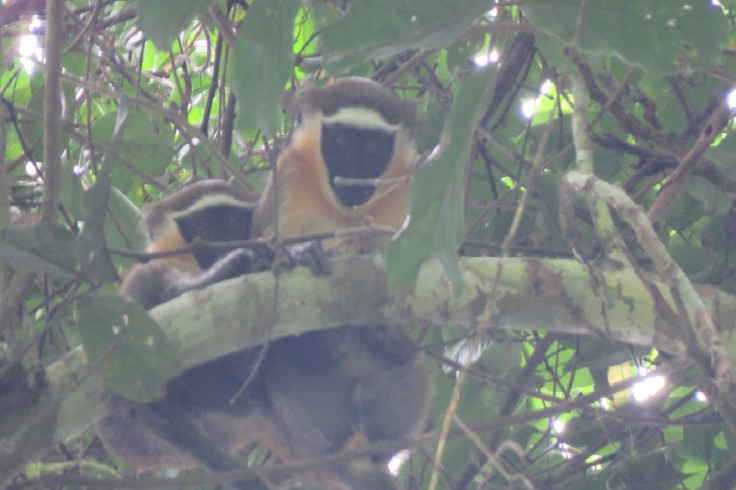Presumed extinct yet thriving deep in the Congo Basin? First footage of shy Dryas monkeys
New population of Dryas monkeys has been found in remote part of the Congo Basin.
Hidden camera traps deep in the Congo Basin rainforest have caught the first ever footage of the Dryas monkey, also known as the Inoko.
Thought to have become extinct decades ago, the monkey was first discovered in 1932 – in a different part of the Congo Basin – but it wasn't given much of a chance for survival due to its low population numbers.
Now it has been spotted again in the Lomami National Park in the Democratic Republic of Congo. The Dryas monkey is about the size of a house cat and is extremely shy. Researchers decided to set up camera traps in the area after recent reports of a dead monkey by a local hunter in the national park.
"The Dryas monkey is extremely cryptic and we had to think of a creative strategy to observe them in the wild," said Kate Detwiler, a primatologist at Florida Atlantic University in the US.
"Dryas monkeys are drawn to dense thickets and flooded areas. When threatened, they quickly disappear into a tangle of vines and foliage, mastering the art of hiding."
The researchers strapped cameras to tree trunks high in the canopy of remote regions of the rainforest. Dryas monkeys are excellent at hiding in tangled vegetation, but the traps were successful in catching the only footage of the monkeys to date.
Graduate student Daniel Alempijevic assisted in positioning camera traps, learning to climb the extremely tall trees and strap the cameras safely in strategic locations where a Dryas monkey might pass by.
"The Congo Basin rainforest is the second-largest rainforest in the world, and contains some of the least known species on the planet, many of which are threatened from hunting pressure and deforestation," said Detwiler.

"Our goal is to document where new Dryas populations live and develop effective methods to monitor population size over time to ensure their protection. Understanding where they reside is important, because the animals living inside the Lomami National Park are protected, as it is illegal to hunt."
The remote and little-explored Congo Basin has yielded some remarkable discoveries recently, such as being home to the world's largest tropical peatland, which covers an area larger than England.
© Copyright IBTimes 2025. All rights reserved.






















